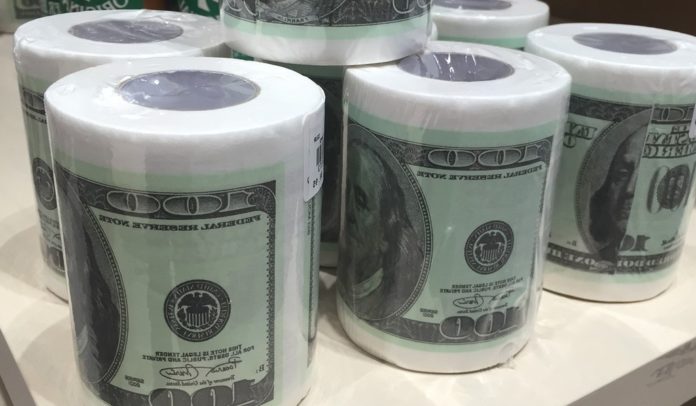
Memes are running rampant across the internet. So rampant, in fact, that advertisers have gotten in on the game, slipping in products and plugs wherever they can. Does this mean, then, that the death of meme culture is nigh? Monetizing and commercializing something that has, often, and importantly, given a big middle finger to the establishment and status quo?
Well, if it does, better cash in now.
But no, you cannot hit Microsoft Paint for a few minutes and go viral.
Or maybe you can. The laws of viral internet comedy are few and flexible. If it makes people laugh, it can spread like wildfire and reach even more people than Jesus (at least according to Google Trends, which reported earlier this year that memes, for the first time, had surpassed the Son of God in number of searches).

Meme money
The fact that you can make money by making memes is more than just a sign of the times; humor is no longer dedicated to stand-up stages, or TV shows and films. The internet has given anyone with quick wit the chance to reach people, leveling the playing field to let virtually everyone get their humor out into the world (wide web).
It’s a simple formula, really. The right picture + the right caption = success. Of course there are other nuances to it: right social/political climate, the right users sharing the meme to set the snowball effect in motion, etc.
(It helps to have a strong social media following/presence to begin with: if no one sees the meme there is no way for it to spread, obviously)
And, like anything on the internet, you either need to get subscribers or advertisers involved in order to get paid.
Elliot Tebele, better known as FuckJerry, for example, can make up to $30,000 when he posts a sponsored meme or plugs a brand, upcoming movie, etc. Josh “The Fat Jew” Ostrovsky has amassed an almost 2 million dollar fortune meme-making, plugging different products while cultivating his own particular brand of internet humor.
But companies have also discovered recently that there isn’t necessarily a need for a third party like Tebele. You can also use memes as advertising, as Gucci did by creating #TFWGucci. A “collaborative meme project,” it’s an entire campaign dedicated to meme advertising, that, perhaps inadvertently perhaps not, has launched an entirely new platform for advertising luxury items.
As Gucci describes on the TFWGucci website,
The word “meme” was coined by the British biologist Richard Dawkins in 1976 to mean an “imitated thing.” For Dawkins, the word referred to pieces of language and culture that were transmitted across time and space, but the Internet has carried that idea of transmission to its extreme. Memes… are the common currency of social media, passed from user to user millions times a day.
Gucci was quick to capitalize on that notion; if there are new constantly new products being introduced on a regular basis, then there can be new memes made on a regular basis to promote them. And what better way to insert these products into the internet milieu, and all the big spenders therein, than by dropping dank memes about them?
So when you scroll through memes on FuckJerry, or you stop, laugh, and share something you see on Facebook, Instagram, and Snapchat, you’re not only looking at the latest form of communication, but also at the future of advertising, consumerism, currency.
Read this next: Gamers beware: Video game addiction is now considered a mental health disorder
















